Inside: Discover 21 Social Emotional Learning Activities to enhance students’ emotional intelligence and social skills.
Social Emotional Learning (SEL) is crucial for the holistic development of children, helping them navigate emotions and build meaningful relationships.
Dive into this comprehensive guide to explore engaging activities that can transform your students’ or children’s emotional and social capabilities.
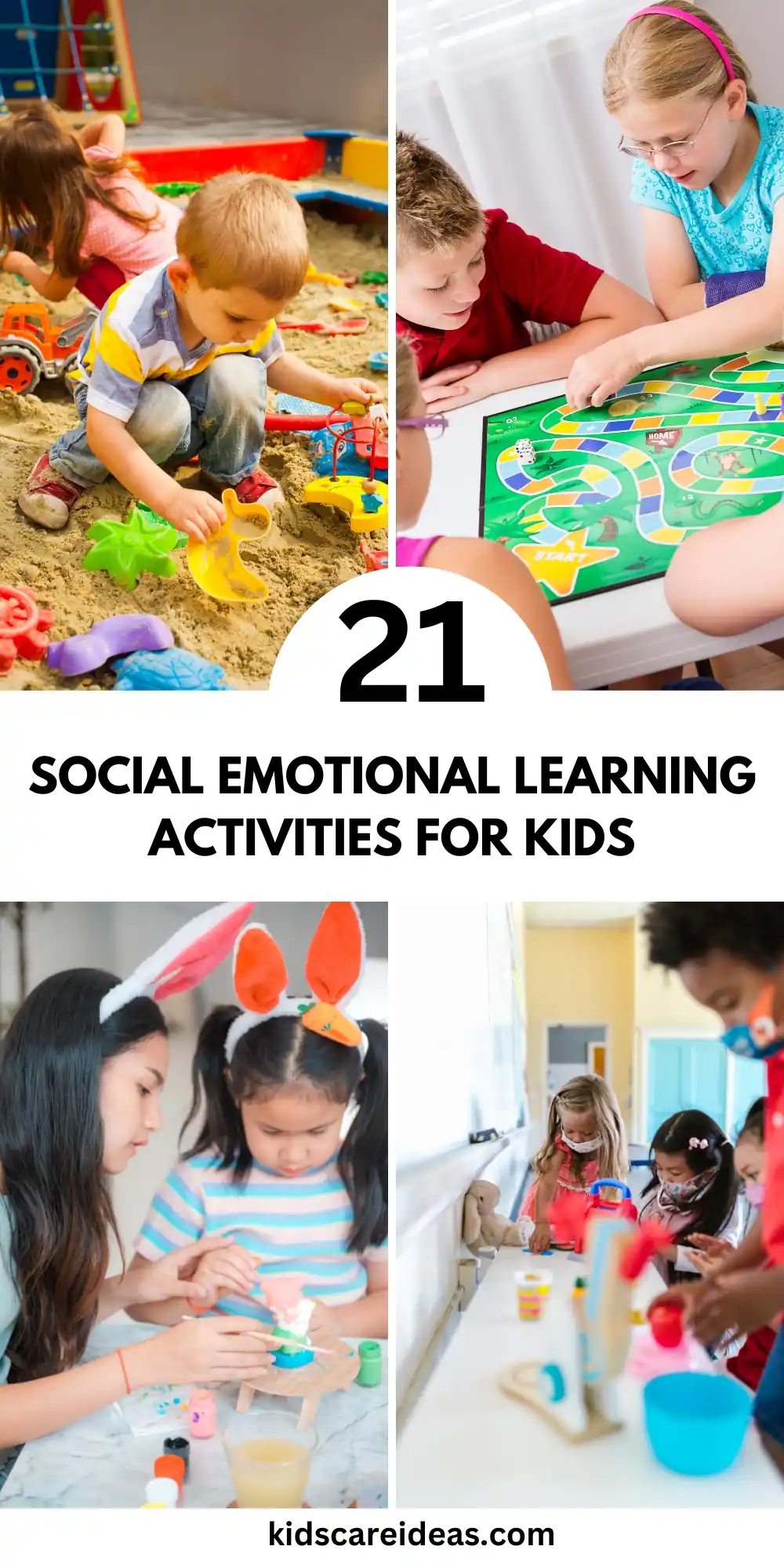
1. Emotion charades
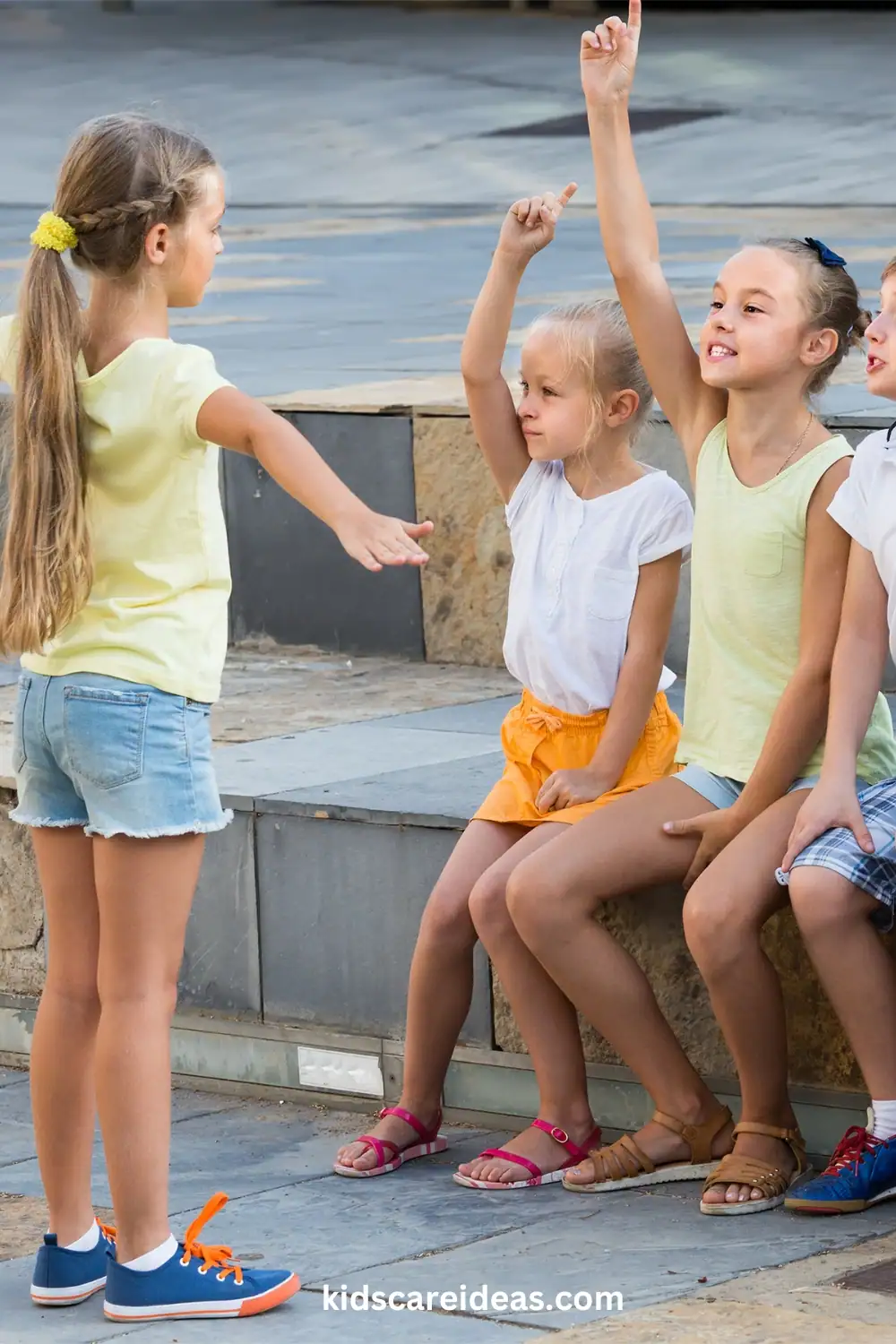
Get ready for some fun! In this game, you act out different emotions without words. Your friends try to guess what you’re feeling.
It’s a great way to learn about body language and facial expressions. You can use emotion cards or come up with your own ideas.
This game helps you recognize emotions in others and express your own feelings better. It’s perfect for all ages and can be played anywhere.
Try it at home, school, or parties. Remember, there’s no right or wrong way to show an emotion – everyone is unique!
Expert Tip from KidsCareIdeas: “Add a twist by having players guess both the emotion and its intensity. This helps kids understand that emotions can vary in strength.”
2. Gratitude journaling

Grab a notebook and get ready to feel good! Gratitude journaling is all about writing down things you’re thankful for.
It can be big stuff like family or small things like a yummy snack. Try to write 3-5 things each day.
You’ll start noticing more positive things in your life. It’s like training your brain to see the good stuff.
This habit can make you happier and less stressed. You can do it in the morning to start your day right, or at night to end on a positive note.
Expert Tip from KidsCareIdeas: “Encourage kids to use all five senses in their gratitude entries. This deepens their appreciation and makes the exercise more engaging.”
3. Mindfulness meditation

Close your eyes and take a deep breath. Mindfulness meditation is about paying attention to the present moment.
You focus on your breathing or body sensations. It’s okay if your mind wanders – just gently bring it back. Start with just a few minutes a day. You can use apps or videos for guided sessions.
This practice helps calm your mind and reduce stress. It can improve focus and emotional control too.
You can do it anywhere – at your desk, in bed, or even on the bus.
Expert Tip from KidsCareIdeas: “Introduce mindfulness with a ‘mindful eating’ exercise using a small treat. It’s a fun way to practice awareness using multiple senses.”
4. Role-playing conflict resolution
Time to put on your acting hat! In this activity, you and a partner act out different conflicts.
Then, you practice solving them in a peaceful way. You might pretend to argue over a toy or disagree about what game to play.
The goal is to find a solution where both people feel heard and happy. This helps you learn how to handle real-life arguments better.
You’ll practice using “I” statements, listening, and finding compromises.
Expert Tip from KidsCareIdeas: “After each role-play, have the actors switch roles and try again. This builds empathy by letting kids see both sides of the conflict.”
5. “I feel” statement practice
Learn to express your feelings clearly! “I feel” statements help you talk about your emotions without blaming others.
Instead of saying “You’re mean!”, try “I feel hurt when you say that.” Practice with different situations.
You can write them down or say them out loud. This skill helps prevent arguments and solve problems.
It’s great for all kinds of relationships – with friends, family, or classmates. Remember, it’s okay to have feelings.
The key is expressing them in a helpful way.
Expert Tip from KidsCareIdeas: “Create a visual ‘feelings wheel’ to help kids expand their emotional vocabulary. This makes forming ‘I feel’ statements easier and more precise.”
6. Active listening exercises
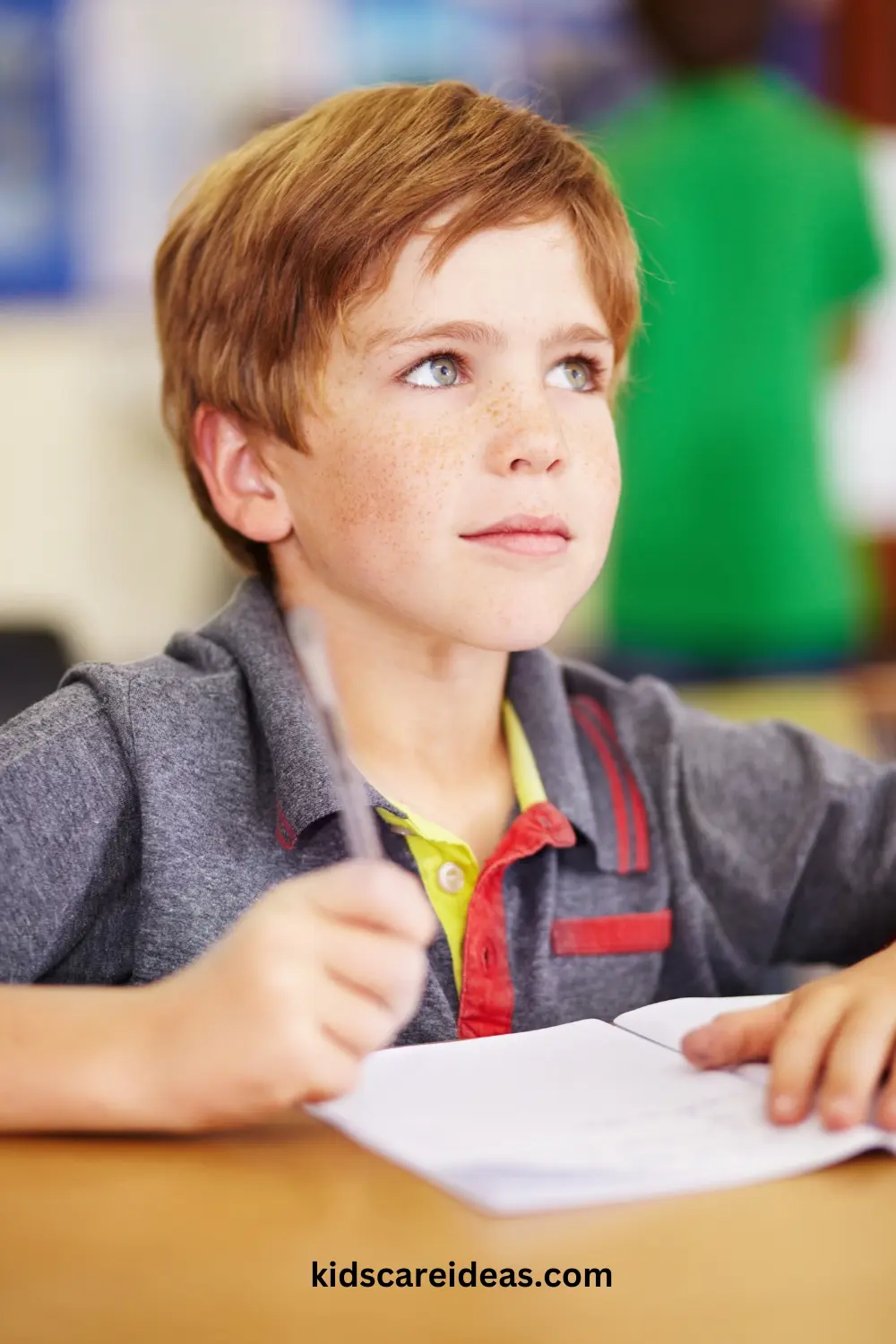
Time to turn up your listening skills! In this activity, you practice really hearing what others say.
One person talks about a topic they like for a minute. The listener then repeats back what they heard. No interrupting allowed! Then you switch roles.
This helps you focus on others and understand them better. It’s a great way to improve friendships and learn new things.
You can practice with fun topics like favorite movies or dream vacations.
Expert Tip from KidsCareIdeas: “Introduce non-verbal active listening cues, like nodding and maintaining eye contact. This helps kids understand that listening involves more than just ears.”
7. Collaborative art projects
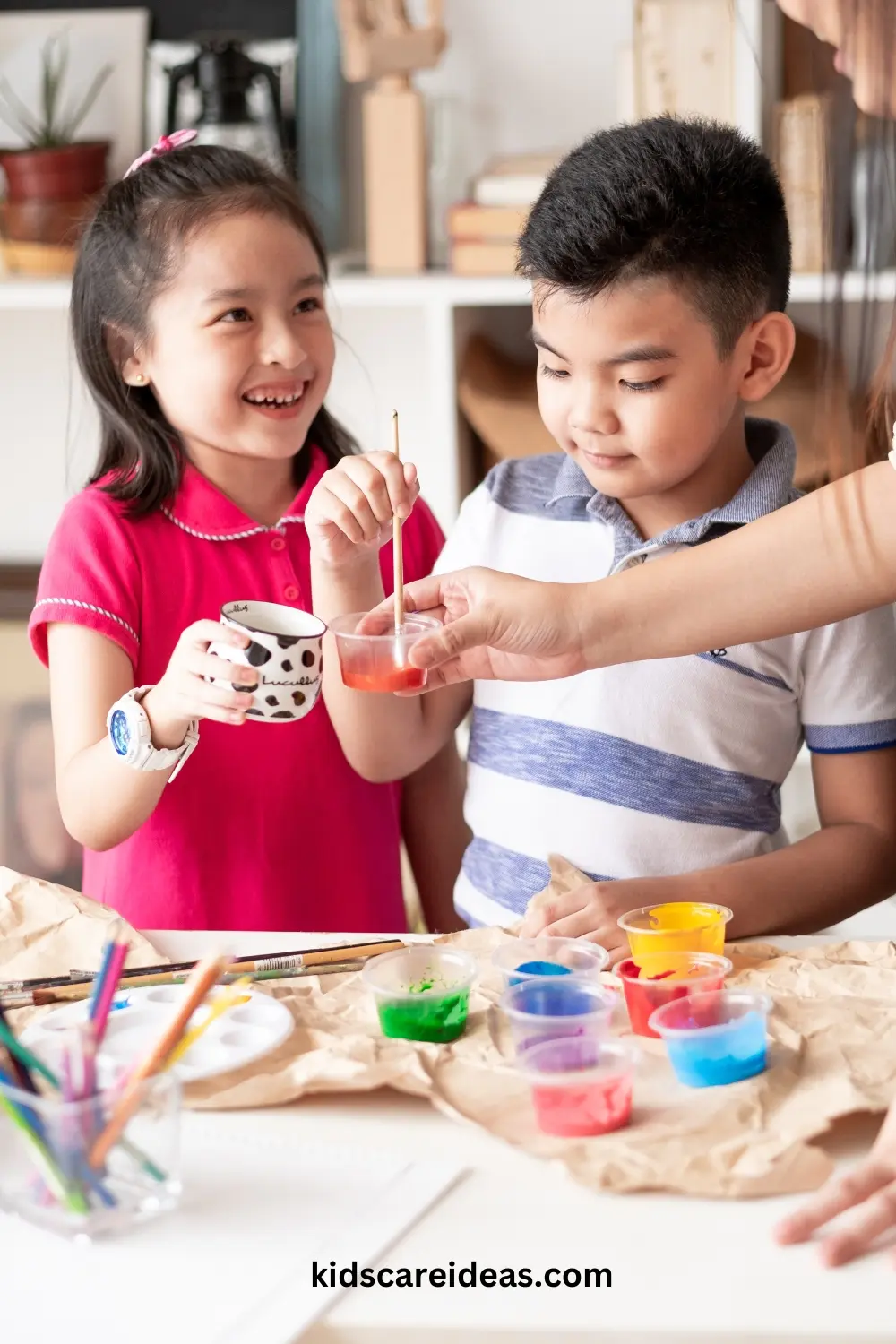
Get creative together! In this activity, you make art with others. You could paint a big mural, build a sculpture, or create a collage. The key is working as a team.
You’ll need to share ideas, make decisions, and compromise. This helps you practice communication and teamwork.
It’s also a fun way to express feelings and learn about others. Don’t worry about making perfect art – it’s the process that counts!
Expert Tip from KidsCareIdeas: “Try a ‘silent’ collaborative art project where kids can’t speak. This encourages non-verbal communication and can lead to interesting discussions afterward.”
8. Stress ball making
Squish your stress away! In this fun activity, you’ll make your own stress ball.
You’ll need balloons and something to fill them with, like flour or rice. As you make it, talk about what causes stress and how to handle it.
Once it’s done, you can squeeze the ball when you feel worried or upset. It’s a great way to release tension.
Plus, you get to take home a cool, handmade tool to help you feel calm.
Expert Tip from KidsCareIdeas: “Have kids decorate their stress balls with faces representing different emotions. This adds a visual component to help them identify and express their feelings.”
9. Peer compliment circle
Spread some kindness! In this activity, everyone sits in a circle.
Take turns saying something nice about the person next to you. It could be about their personality, skills, or something they did.
This helps you practice giving and receiving compliments. It boosts self-esteem and creates a positive atmosphere.
Remember to be specific and sincere. You might be surprised how good it feels to make others smile!
Expert Tip from KidsCareIdeas: “Encourage kids to compliment actions and efforts rather than just appearances. This reinforces the value of kindness and hard work.”
10. Problem-solving scenarios
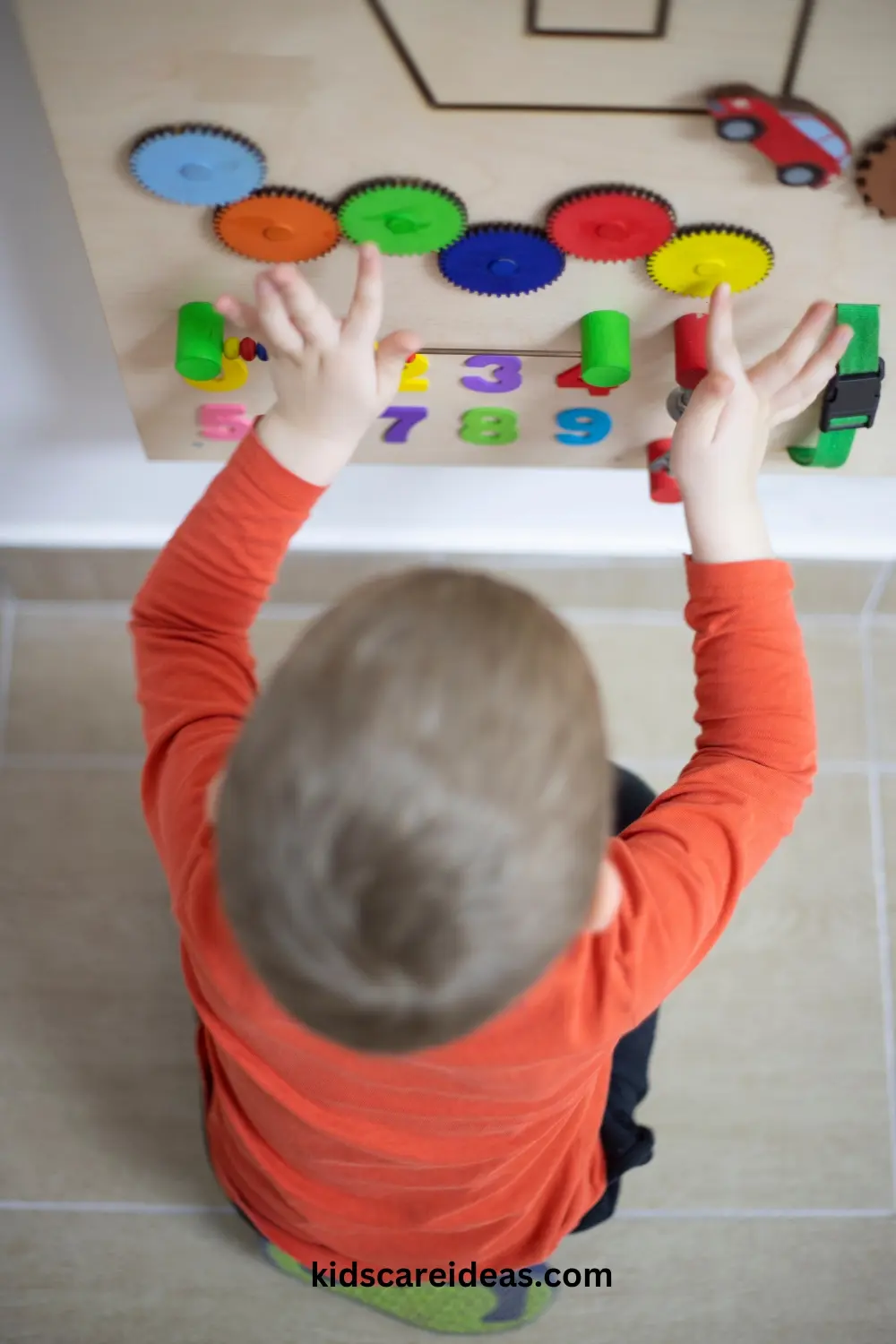
Put on your thinking cap! In this activity, you’ll tackle made-up problems.
You might figure out how to help a new kid make friends or solve a fight between teammates. Work in small groups to come up with solutions.
Share your ideas and listen to others. This helps you practice critical thinking and teamwork.
You’ll learn there’s often more than one way to solve a problem.
Expert Tip from KidsCareIdeas: “Use real-life scenarios from the kids’ experiences when possible. This makes the exercise more relevant and helps them apply the skills to their daily lives.”
11. Emotion vocabulary building
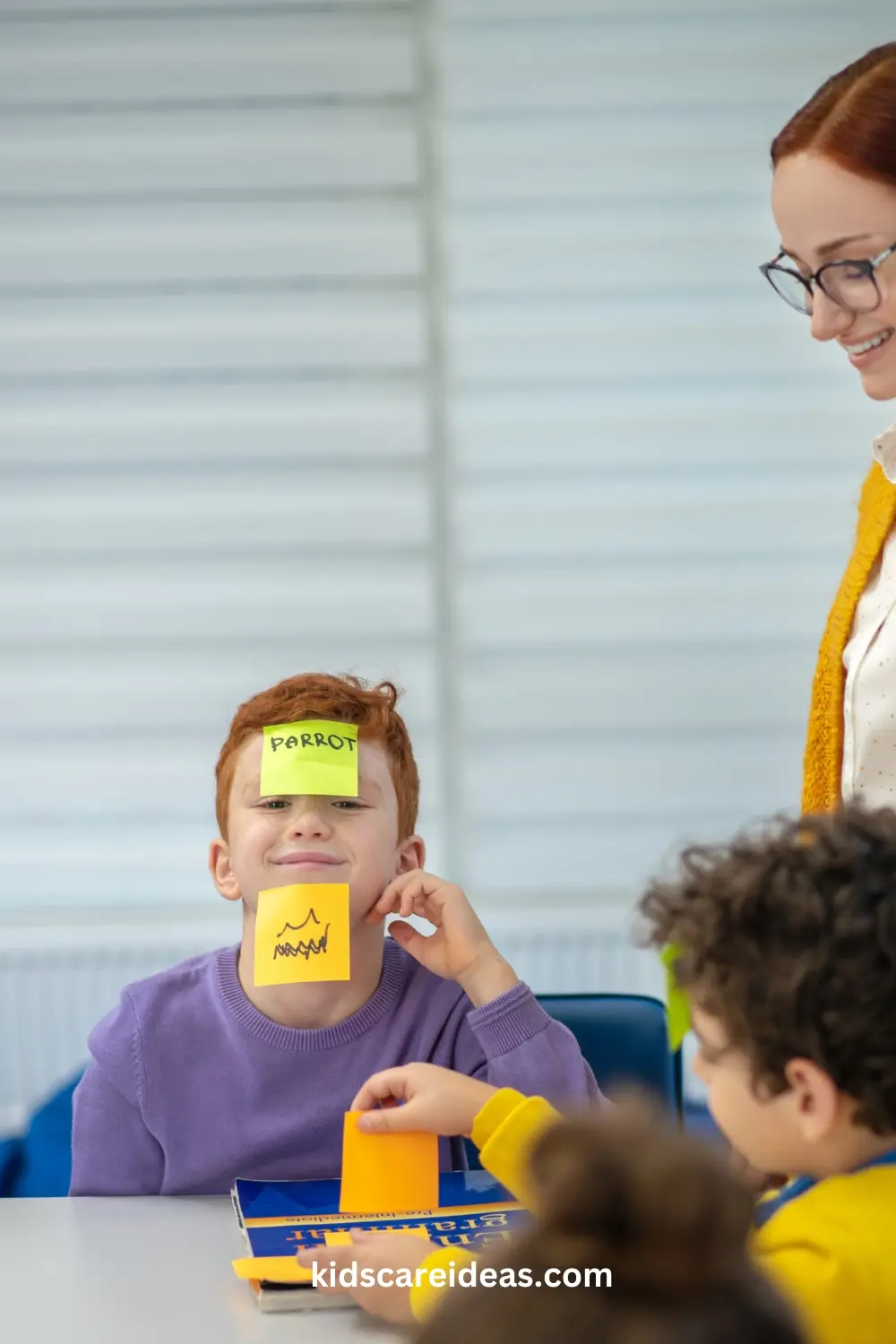
Time to grow your feeling words! In this game, you’ll learn new ways to describe emotions.
Start with basic words like “happy” or “sad.” Then, find more specific words like “ecstatic” or “gloomy.”
You can make a word wall, play matching games, or act out different emotions. This helps you express your feelings better.
It also helps you understand others more. The more words you know, the better you can talk about feelings!
Expert Tip from KidsCareIdeas: “Create an ’emotion intensity scale’ for each basic emotion. This helps kids understand and express the nuances of their feelings.”
12. Breathing exercises
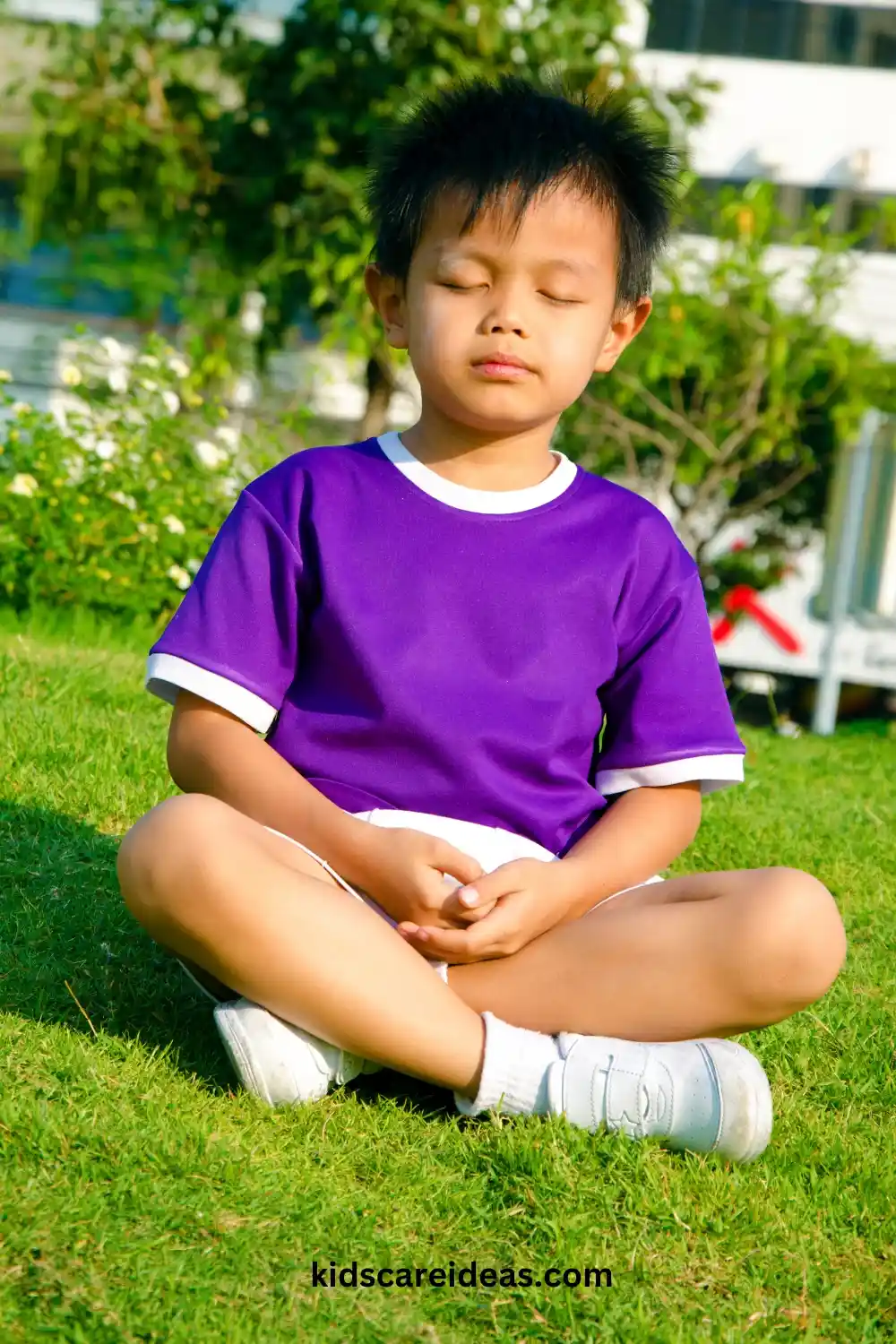
Take a deep breath and relax! Breathing exercises help you calm down when you’re stressed or upset.
Try counting your breaths or imagining blowing up a balloon in your belly. You can do these exercises anywhere, anytime.
They’re great before a test or when you’re feeling angry. Practice every day to get better at it. Soon, you’ll be able to use these tricks to feel calmer quickly.
Expert Tip from KidsCareIdeas: “Introduce visual aids like pinwheels or bubbles to make breathing exercises more engaging for younger children. This helps them see the effect of their breath.”
13. Goal-setting workshops
Dream big and plan smart! In this activity, you’ll learn how to set and reach your goals.
Start by thinking about what you want to achieve. Then, break it down into smaller steps.
Write your goals down and share them with others. This helps you stay on track.
You’ll also learn how to handle setbacks and celebrate successes. Remember, it’s okay if your goals change over time.
Expert Tip from KidsCareIdeas: “Encourage kids to create a visual representation of their goals, like a vision board. This keeps their objectives in sight and makes the process more creative.”
14. Empathy storytelling
Step into someone else’s shoes! In this activity, you’ll tell or write stories from different perspectives.
You might describe a day as your pet or imagine being a new student. This helps you understand how others might feel.
It’s a fun way to practice empathy and creativity. You can draw pictures to go with your stories too.
Sharing your stories with others can lead to great discussions.
Expert Tip from KidsCareIdeas: “After the storytelling, guide a discussion about how the exercise changed their perceptions. This reflection helps cement the empathy lessons learned.”
15. Trust-building games
Get ready for some team fun! Trust-building games help you work better with others.
You might guide a blindfolded friend through an obstacle course or fall back for others to catch you. These games can feel a bit scary, but that’s part of the point.
You learn to rely on others and be reliable yourself. Always follow safety rules and respect others’ comfort levels.
Expert Tip from KidsCareIdeas: “Start with low-risk activities and gradually increase the challenge. This builds confidence and allows trust to develop naturally within the group.”
16. Self-reflection writing prompts
Grab a pen and get to know yourself better! Self-reflection prompts help you think about your thoughts and feelings.
You might write about your biggest fear or a time you felt proud. There are no right or wrong answers.
Just be honest with yourself. This can help you understand your emotions and actions better.
You don’t have to share what you write unless you want to.
Expert Tip from KidsCareIdeas: “Provide a mix of light-hearted and deeper prompts. This keeps the activity engaging while gradually building comfort with self-reflection.”
17. Team-building challenges
Work together and have fun! Team-building challenges are like puzzles you solve as a group.
You might build the tallest tower with marshmallows and spaghetti or get your whole team across an imaginary river. These games help you practice communication, leadership, and problem-solving.
The goal is to work well together, not just to win. Remember to listen to everyone’s ideas!
Expert Tip from KidsCareIdeas: “After each challenge, facilitate a brief discussion about what worked well and what could be improved. This reflection enhances the learning experience.”
18. Emotion regulation techniques
Learn to be the boss of your feelings! Emotion regulation techniques help you handle strong emotions.
You might count to ten when angry or use positive self-talk when scared. Practice these skills when you’re calm.
Then, you’ll be ready to use them when big feelings hit. Remember, all emotions are okay. It’s how we handle them that matters.
Expert Tip from KidsCareIdeas: “Create personalized ’emotion regulation toolkits’ with kids. Include items like stress balls, calming pictures, or written reminders of techniques they find helpful.”
19. Cultural sensitivity discussions
Explore the amazing diversity in our world! In these discussions, you’ll learn about different cultures and ways of life.
You might try foods from around the world or learn about various holidays. The goal is to understand and respect differences.
Ask questions and share your own experiences too. Remember, everyone has unique traditions and beliefs.
Expert Tip from KidsCareIdeas: “Incorporate hands-on activities like trying on traditional clothing or learning simple phrases in different languages. This makes the learning more immersive and memorable.”
20. Personal strength identification
Discover your superpowers! In this activity, you’ll identify your personal strengths.
These could be things like being a good listener or never giving up. Ask friends and family what they think you’re good at.
Make a list of your strengths and think about how you use them. This boosts your confidence and helps you use your talents more. Remember, everyone has different strengths!
Expert Tip from KidsCareIdeas: “Create a ‘strength spotlight’ where each child gets a chance to showcase one of their strengths to the group. This builds confidence and peer appreciation.”
21. Positive self-talk exercises
Be your own cheerleader! Positive self-talk means saying encouraging things to yourself.
Instead of “I can’t do this,” try “I can try my best.” Practice saying kind things to yourself out loud or in your head.
This helps you feel more confident and happy. It’s like training your brain to focus on the good stuff. Remember, how you talk to yourself matters!
Expert Tip from KidsCareIdeas: “Have kids create colorful ‘positive self-talk cards’ with encouraging phrases. They can keep these in their desks or backpacks for quick reminders throughout the day.”
